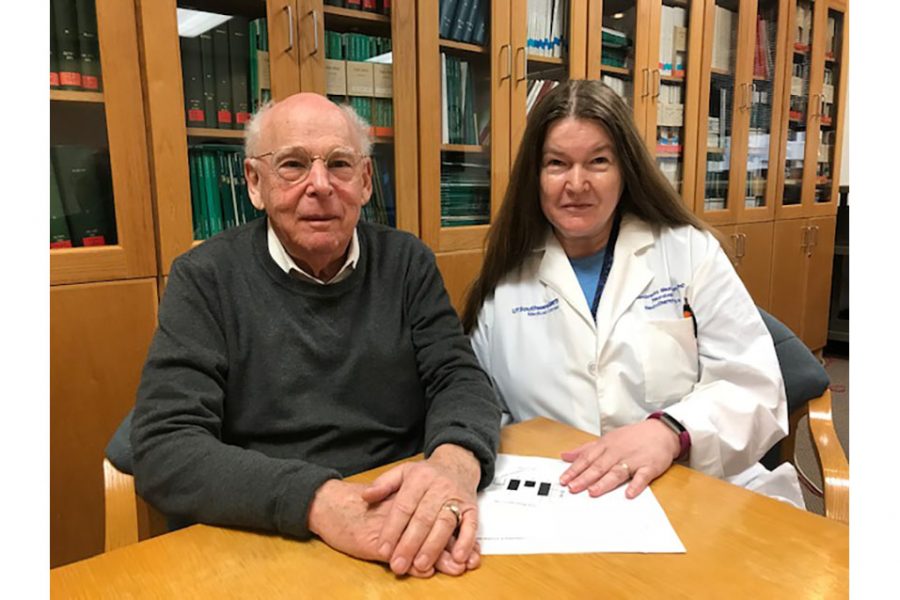Researchers at UT Southwestern have developed a potential vaccine for Alzheimer’s disease with successful trials on rabbits, monkeys and now mice. In a paper published ten days ago, neurology professor Roger Rosenberg and assistant professor Doris Lambracht-Washington said the vaccine reduced toxic proteins contributing to Alzheimer’s by almost half in mice with the disease.
According to the Alzheimer’s Association, Alzheimer’s disease is a form of dementia where the brain’s memory and function decline, typically in aging people. The association predicts the number of cases in the U.S. will rise to 13.8 million by 2050. John Bertelson, a neurologist at Dell Medical Center who is unrelated to the study, said this disease might be America’s next medical catastrophe.
“(Alzheimer’s) affects about one in three people over the age of 85,” Bertelson said. “As much of a problem this is right now, it’s going to be even more of a problem down the road as America ages.”
Rosenberg said the vaccine may be able to combat this rise by reducing the damaging buildup of amyloid and tau proteins central to Alzheimer’s. When these normally harmless proteins accumulate, they make plaques and tangles the brain can’t fight off.
A compound called ABeta42 peptide can prevent buildup by making the body create antibodies that decrease the amount of harmful proteins, Lambracht-Washington said. Previous studies have attempted the same, but those vaccinations caused brain inflammation in human patients.
Lambracht-Washington said that unlike the previous vaccines, this one contains the DNA that makes the body create the peptide itself.
“We didn’t find any cells of the immune system that made an inflammatory product,” Rosenberg said. “In the animals we tested, it’s safe, non-toxic and tolerated.”
The vaccine has not been tested in humans, since it has just passed animal trials. But the results have been promising: ABeta42 reduced amyloid buildup by 40 percent, and tau buildup by 50 percent, which Lambracht-Washington said is a remarkable difference.
If all goes well, clinical trials could start as soon as two years from now, Rosenberg said. The lab is preparing to apply for grants and hasn’t finalized how they’ll administer the vaccine to people, but Rosenberg said they plan on giving it to patients in their 60s and 70s.
“The potential of the vaccine lies in significantly reducing the levels of amyloid and tau in very early Alzheimer’s disease (before symptoms have presented themselves),” Rosenberg said. “Theoretically this could delay onset of Alzheimer’s, which has the potential to reduce the amount of disease in the population.”
Bertelson said it’s difficult to predict how the vaccine will interact with the human body; ABeta42’s effect on mice may not have as strong an effect on people. However, delaying the onset of Alzheimer’s by even five years could significantly affect the number of cases, Bertelson said, as well as potentially halve Medicare costs for this increasingly common disease.
Rosenberg, Lambracht-Washington and Bertelson also said they were cautious of potentially damaging side effects that clinical trials could unearth.
“(The previous vaccine) did not show any pathology in the mouse, it was beautiful,” Lambracht-Washington said. “But when the people were the patients, eight percent developed brain inflammation so it had to be stopped right away.”
The future of the vaccine may be unpredictable but its current potential can’t be ignored.
“This is a critically important area to study right now,” Bertelson said. “It’s really very exciting that (Rosenberg and Lambracht-Washington) are doing this.”















